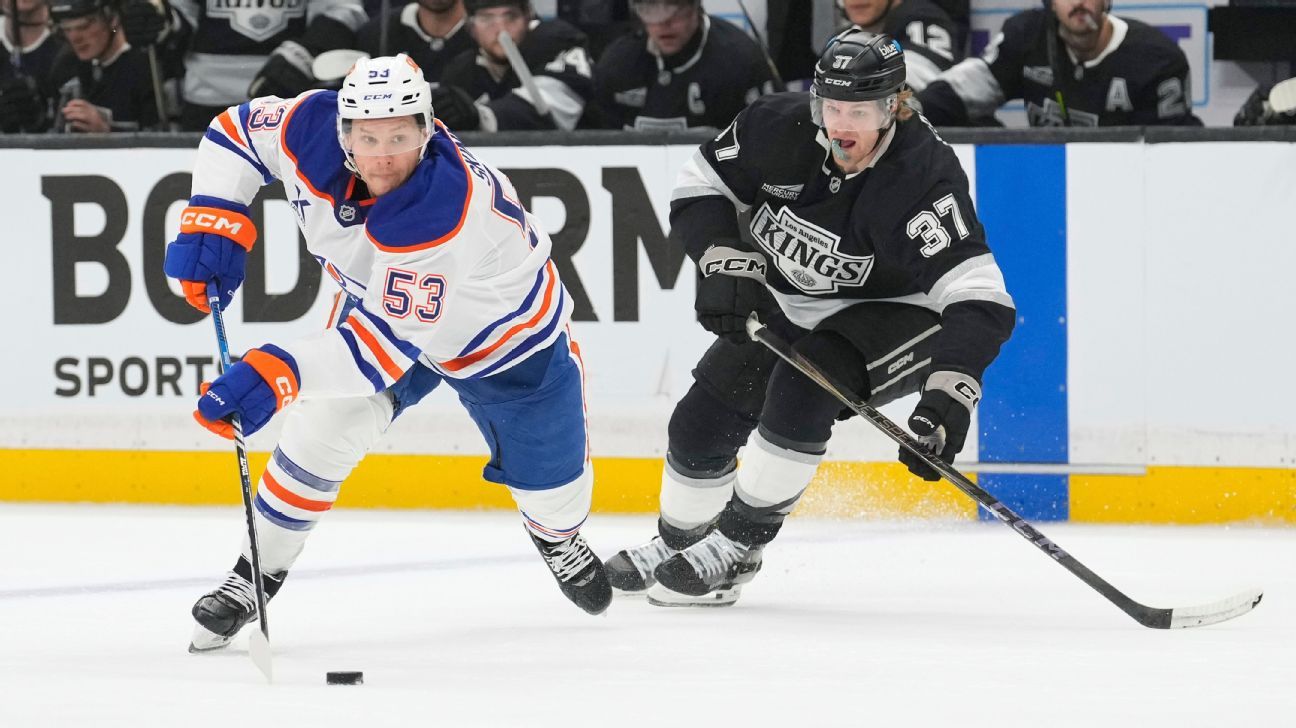There’s no doubt about it: GLP-1 drugs, such as Ozempic , have been nothing short of revolutionary. Those that take them lose an average of 15 to 20 per cent of their body weight — levels previously only seen with bariatric surgery (such as a gastric band). For many people living with obesity, these weight loss drugs have provided the answer they were searching for.
But many people don’t want to continue taking them forever — especially once they’ve achieved their desired level of weight loss. This can be for multiple reasons: cost is at the forefront for many (these drugs aren’t widely available on the NHS and can set you back £300 a month privately); unpleasant side—effects can put others off; and for some it’s about wanting to enjoy food again – it’s common for people to report losing the pleasure they used to derive from eating, a key part of all our lives. In the simplest terms, GLP—1 drugs work by making you less hungry so you eat less and lose weight.

“They affect the brain in a way which increases satiety whilst also slowing gastric emptying which also sends signals to the brain to say you’re full,” explains one of the world’s foremost experts in obesity and weight management, Dr James Hill. “They also reduce what people term ‘ food noise ’. It’s like magic; people who used to think about food all the time suddenly don’t.
All of this means you get full on far less food,” Dr Hill explains. This works incredibly effectively – while you’re on them. “When you stop taking them all of these effects go away,” says Dr Hill.
“These drugs create an artificial situation but when you stop, boom, you’re back to the way you were before.” See also: Can these secret ingredients have the same effect as ozempic? Luckily, this doesn’t have to mean inevitable weight regain. There are plenty of things you can do to keep the weight off for good while also improving your general health — win, win.
Here’s how to do it according to the experts. Build new habits before coming off the drug Leading obesity expert Dr Giles Yeo says the most crucial thing to do if you want to come off GLP—1 drugs is plan for it. “While you’re on the drug you need to retrain yourself and build different habits.
If you go back to however you were eating before the weight will come back. Luckily, it’s clear that habits are buildable,” he says. Practically this means things like taking the stairs instead of the lift every single time you have the opportunity, until that’s a routine that your brain defaults to.
It also means adopting a healthier diet . “The drug will make you eat less of whatever you were already eating – if you ate chips and Oreos you’ll eat less chips and Oreos but that’s not a healthy diet and won’t help when you come off the drug,” says Dr Yeo? Dr Yeo believes the drugs should be prescribed with wraparound care, including dietary and exercise intervention so that lasting changes can be made. Focus on fibre and protein What’s a healthy diet? Simply put, a healthy diet is a balanced one with an abundance and variety of plant foods.
Focusing on eating fibre and protein can particularly help when coming off weight—loss drugs. They help to trigger satiety hormones – just like the drugs do – and keep you fuller for longer. Dr Emily Leeming, gut microbiome scientist, says: “Choose proteins like chicken, fish, eggs and cottage cheese, and pair with fibre rich foods like veggies, quinoa, wild rice and add toasted mixed seeds for an added fibre boost.
” You don’t have to spend a lot of money – humble beans (particularly black beans and kidney beans) are one of the best sources of fibre out there. Even frozen peas are a great source. Portion size and physical activity If you want to lose weight you have to be in a calorie deficit, says Dr Yeo.
“There’s no way around it. It’s physics.” And to maintain weight loss you have to adapt to a new normal – instead of going back to the amount of food you used to eat.
Calories are really hard to measure so instead it’s better to think about portion size, says dietician Priya Tew. “Take time to get to know what a standard portion is and how to judge this in the context of the meals you enjoy. Also, if you are not normally very active, add in movement that you enjoy to your day, so that you are being more active and this becomes a normal part of your lifestyle.
” Dr Hill says that physical activity is really helpful for weight maintenance. “We've worked with a project called the National Weight Control Registry for decades now, where we follow people that have been very successful at long term weight loss. "We studied over 10,000 people and found that only 8 per cent of those were maintaining their weight with very little physical activity, which means that the other 92 per cent were doing physical activity.
The average amount of weight they're keeping off is about 70 pounds (approx 32 kg), and they report, on average, about an hour a day of physical activity." Strength training is key Rapid weight loss – whether you do it through GLP-1s or another method normally results in muscle loss and it’s important to try to mitigate this, says Rachael Sacerdoti, PT and weight loss expert. “The more muscle you have the higher your metabolic rate is,” she says.
Muscle tissue is metabolically active — it uses energy even when you're not doing anything – whereas fat tissue burns very little in comparison. This is why Sacerdoti is a huge advocate of strength training. “It’ll protect your muscles while you’re on the drug and help to increase your metabolic rate when you come off them.
” Strength training is particularly important for women, says Rachael. “It’s the holy grail for women about the age of 35. It enhances your quality of life and longevity and helps you get through the perimenopausal and menopausal years.
” She recommends three to five sessions per week. Rachael, who lost a huge amount of weight herself, says that staying strong is her number one priority now. “I don’t watch my body fat anymore, my main goal is to build up muscle so that I’m going to age in the most healthy way possible.
” Whether you’ve been on weight loss drugs or not, strength training (and these other tips) will be beneficial. Forget an ‘all or nothing’ mindset Often weight loss gets stopped in its tracks due to an “all or nothing” mindset. “It’s the thinking that: I was doing really well but now that I’ve had a cookie I should finish the whole bag,” explains Rachael.
“People think if they’re not doing 100 per cent, it’s not worth them doing 20 per cent.” This thinking is fundamentally wrong. You need to take small steps towards what you want, says Rachael.
“Even if you progress every day by just two per cent, that is going to add up.” Think forever, not short-term Dr Hill, who is the Chair of the Department of Nutritional Sciences and Director of the Nutrition Obesity Research Center at the University of Alabama at Birmingham, expands on this point. Weight loss and weight maintenance are very different things, he explains.
The former normally involves a temporary period of drastic measures which are unsustainable – missing dinners with your family, not going for drinks with your friends – but the latter requires a long—term shift in your habits. “You have to live your life,” says Dr Hill. “It’s forever.
” He recommends three strategies for this: “using food as medicine, using exercise as medicine and using your mind as medicine”. It’s this three—pronged approach that is critical, he says. “One isn’t going to work alone.
” However, the way you approach it mentally is perhaps the most important of all, he says. “With weight loss maintenance you’re going to face challenges and set-backs and you need to have the right mental approach to help you stick to your new lifestyle. "One of the main things is, you’ve got to enjoy it.
If you’re finding the lifestyle miserable and you just hate what you’re eating and you hate the type of physical activity you’re doing then you’re not going to stick to it,” adds Dr Hill. Find healthy food that you want to eat and forms of exercise you genuinely enjoy. If you’re finding things hard, Dr Hill recommends reframing it.
“It’s not hard, it’s a journey; it’s a voyage, it’s a way of better understanding yourself.” Consider finding a coach or joining a programme Support systems are extremely helpful for weight maintenance. Rachael says think about joining a group of others who are in the same position or getting a coach.
They can offer moral support and keep you accountable. She also recommends celebrating “non-scale victories”. While weighing yourself can be very helpful for some others hate it and the scale doesn’t always tell the full story, says Rachael.
Women’s weight, in particular, can fluctuate a lot due to hormones and water levels, so instead it can be helpful to see how your clothes fit, take pictures of your body in the mirror for a reference point, and see how you feel. Stay on or go back on the drugs For some people staying on or going back on the drugs will be the right choice. Dr Yeo predicts a future where people will reduce their dose for maintenance.
“There are clinical trials at the moment exploring what maintenance will look like. They’re testing reducing the dose and increasing the period of time between doses. “This is going to mean two things: it’ll be cheaper and you’ll get less side-effects because you’re using less.
It may be that in the future people just go for top up jabs twice a year. I think that would be far more palatable for people and for the NHS.”.
Sports

How to come off Ozempic without gaining weight — the expert's guide

Coming off GLP-1 drugs doesn’t have to mean inevitable weight gain. Giulia Crouch asks doctors what you can do to keep it off for good — while also improving your general health















